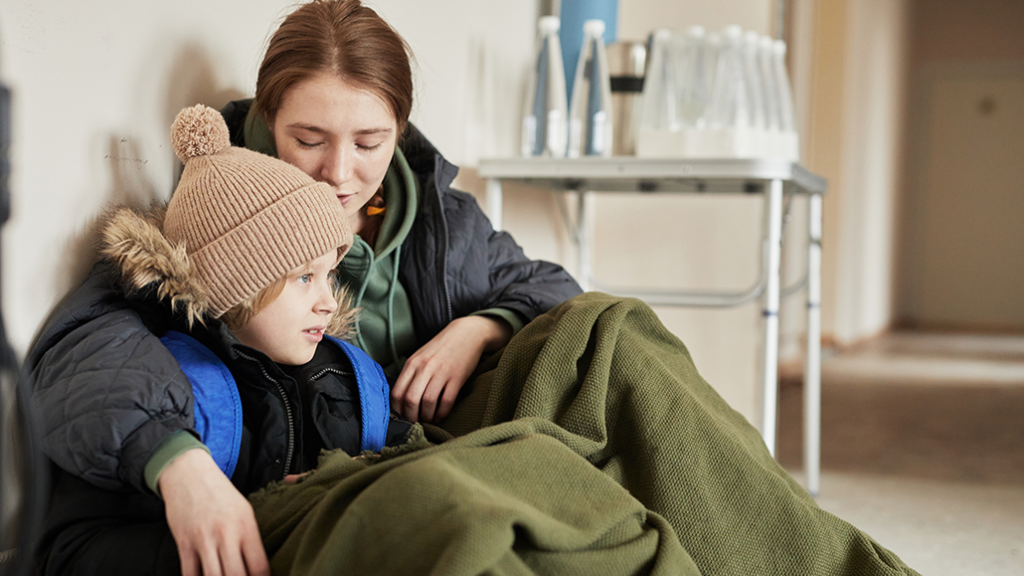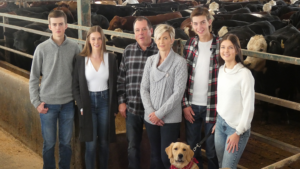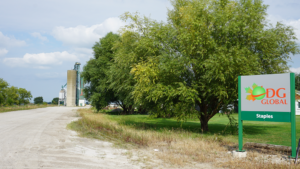Domestic violence in rural Ontario
SUPPORT FOR WOMEN AND FAMILIES

YOU ARE WORTHY of a healthy relationship.
That may seem like an obvious statement, but thousands of women stay in relationships where they are subject to verbal, emotional, physical, and sexual abuse. Domestic violence is an epidemic in Canada — and violent incidents are even more prevalent in rural areas than urban centres. Once in an unhealthy relationship, it is often difficult to leave.
“There are ‘traps’ for women that are unique to rural areas, such as the physical isolation and the lack of transportation,” says Keely Horan, who works as a counsellor with Family Transition Place’s Rural Response program based in Dufferin County. “There is also the sense of everybody knows everybody, which creates a lack of privacy and the fear of victim blaming.”
THE STATISTICS
In 2022, the Canadian Centre for Justice and Community Safety Statistics (a division of Statistics Canada) issued a report to the House of Commons Standing Committee on the Status of Women. It highlighted the rural rate of reported intimate partner violence against women to be 598 per 100,000 population in Ontario. That compares to 378 per 100,000 population in urban locations. Even higher rates were seen across the Prairies and the Territories.
The statistics, however, do not reveal the entire story. Many incidents go unreported, and as was flagged in the report, some of the most common forms of abuse — emotional, verbal, and financial — do not meet the criminal threshold and are not monitored.
ON THE FARM
Within farm families, Horan notes that finances are often one of the key factors influencing a woman’s decision to stay in the relationship. In situations where they do not have any control over their finances, they worry about a lack of funds to support themselves and their children if they leave. In situations where they are joint partners, they stand to lose a massive financial interest.
There is also pressure to preserve the inheritance of the property along with the family’s reputation.
“Moms specifically worry that they are the ones breaking up the family. And they feel they may not be able to provide as much to their children as they currently have,” says Andrea Chantree, a rural response counsellor at Family Transition Place. She adds that it can be difficult to see through the ‘mom guilt’ and recognize that living with fewer things is better than an unhealthy home environment.
Once a woman reaches out for help, leaving may not be the immediate answer. In fact, there could be several attempts before a woman leaves successfully. Developing a safety plan is key because leaving often puts the woman at higher risk for escalated violence, including homicide. Every safety plan is different based on risk and the age and socio-economic status of the woman. It can involve elements such as having a neighbour to go to, keeping your cell phone charged, and knowing whether or not you are willing to call 911 if the situation escalates.
LACK OF SERVICES
It is also a reality for many that leaving is not the answer because there is nowhere else to go — shelters are often at full capacity, and they do not have family or friends to go to. It is also common for farm women to stay in an abusive situation because they feel responsible for protecting livestock and their pets.
“There is a strong link between domestic violence and animal abuse,” says Horan. “Pets and farm animals are often threatened, harmed, or neglected as a means of controlling women.”
The Rural Response program gives Horan and Chantree the unique opportunity to support women however they can — going to their homes if it is safe to do so, meeting them in the community, or even accompanying them to doctor appointments. They provide counselling on what is a healthy relationship and refer clients to additional services they may need.
They also ensure the woman feels heard and validated.
“We are not sitting in judgment,” emphasizes Chantree. “We try and understand why they are reaching out and what they hope we can provide them. A lot of women are just looking for someone safe to talk to, who won’t give them unwanted or dangerous advice.”
The Rural Response counsellors will also offer advice, provide guidelines for developing a safety plan, and refer support services to anyone trying to figure out how to help a woman who they believe is being abused. Common emotional and physical signs of domestic abuse include not showing up for work, isolation from friends and family, visible injuries, and waning confidence.
It is important not to put the abused at further risk. If there is imminent danger, the police should be called immediately.
SUPPORTING VICTIMS
“If you find yourself in a support role, recognize that you are not the only person who can provide that support,” says Horan. “Express your concern in a gentle way and support their decisions to find help options specific to their needs. It can be frustrating to support someone in an unhealthy relationship because you may not understand why they just don’t leave.”
Everyone has a role to play in ending domestic violence. Understanding its prevalence within our rural communities is the first step in working towards healthier relationships and lives free from violence.
Keely Horan and Andrea Chantree will be guest speakers at the 2023 Women’s Grain Symposium, taking place November 27 – 28 in Guelph. For more information and to register, go to www.gfo.ca/womens-symposium. •


























